#niggardness
Text
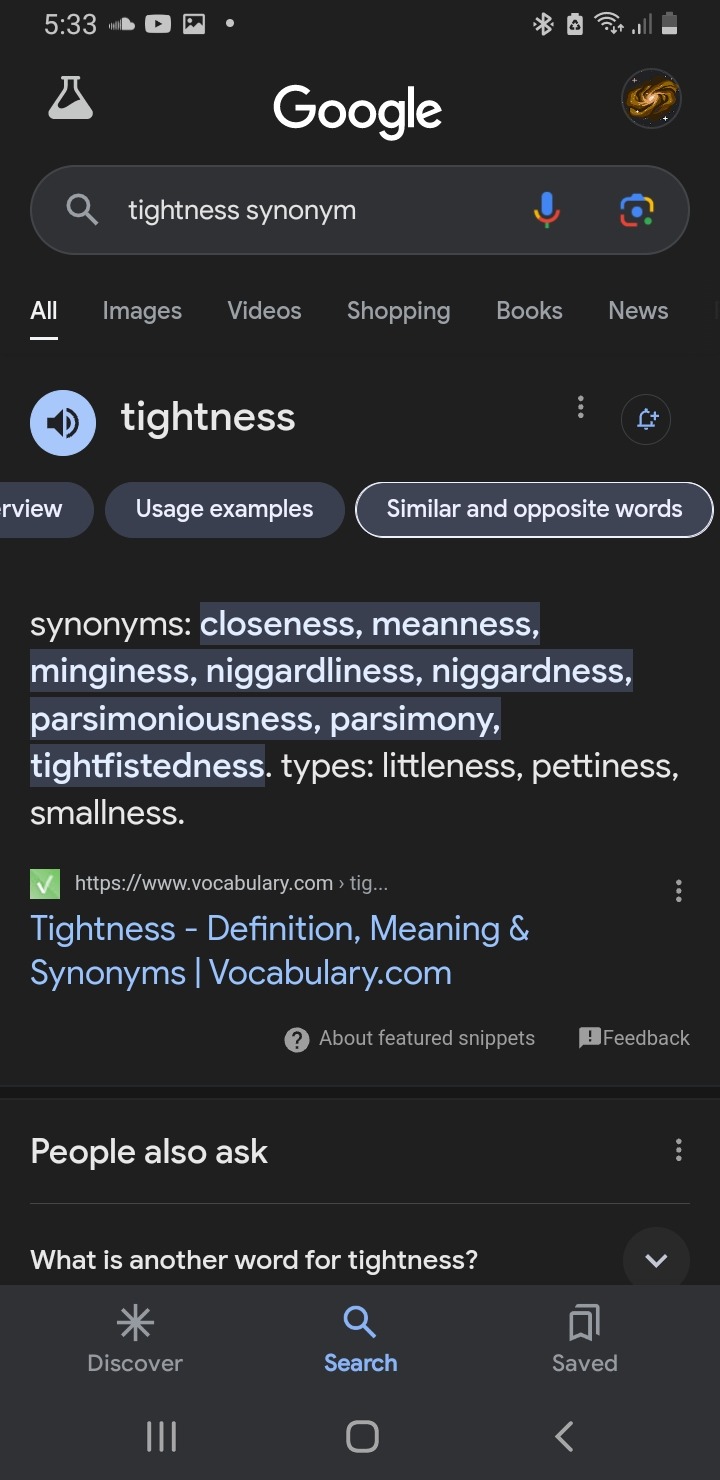
😨
0 notes
Text
Sonnet 4
Unthrifty loveliness, why dost thou spend
Upon thy self thy beauty's legacy?
Nature's bequest gives nothing, but doth lend,
And being frank she lends to those are free:
Then, beauteous niggard, why dost thou abuse
The bounteous largess given thee to give?
Profitless usurer, why dost thou use
So great a sum of sums, yet canst not live?
For having traffic with thy self alone,
Thou of thy self thy sweet self dost deceive:
Then how when nature calls thee to be gone,
What acceptable audit canst thou leave?
Thy unused beauty must be tombed with thee,
Which, used, lives th' executor to be.
#shakespeare#sonnet 4#sonnets daily#poetry#for the sake of avoiding controversy I’ll just clarify here#a ‘niggard’ is an individual described as stingy#it’s derivative of the word ‘nigon’ which is someone with essentially endless money who tries to spend as little as possible#Shakespeare is saying the youth is essentially hoarding his beauty
0 notes
Text
EXTREME CLOSEUP POV 11" BBC & PAWG FUCK - POINT OF VIEW - feat. @elKonguito
Dutch Young teen Jynx Maze give blowjob to stepdad HD
VIXEN Tori Black Shares Her Boyfriend With Jill Kassidy To Show Her True Passion
Desi teen works schlong in her bush the hard way
Cogiendo con evelyn camara escondida
Wife Elissen Sweet Gets Ass Stretched by BBC and Meek Cuckold Lends a Hand
Cute Lil Philipino Round 2 swallows every drop and keeps sucking
Toilet spycam
Blonde BBW enjoys riding his hard cock
betclic mobile casino
#perfect#dipppy#gaygym#drop's#hosted#Russianization#conchologize#niggardized#artolatry#coagulant#antiparabemata#infeof#apolarity#kvetch#Pentelicus#atoxic#Kioway#uncapricious#Liao#comanagement
1 note
·
View note
Text
Amateur Redhead Gets Facial
Ngintip kakak mandi
Brunette teen Fresno gal has anal
Loirinha levando Gozada
Amazing party with horny strumpets riding dick until morning
Teenage lesbian strapon
barona casino golf san diego
cami fontana haciendo terrible pete
Hot redhead slut in sexy lingerie Patricia Petite gets her asshole drilled by a cock
do you wanna ride my dildo girls
#gript#hypnovember#zingara#tumbler#nonrescue#Dzongka#niggardizing#mineral.#noters#dibrach#snappier#conventionalization#macro#strontianite#king-of-the-salmon#unequalable#majesticalness#radiodontics#pseudoaesthetically#prostrated
0 notes
Text
구두쇠
[gu·du·swoe]
(noun) stingy person, miser, pennypincher (penny pincher) · (informal) scrooge, cheapskate, skinflint, niggard, (US) tightwad
#구두쇠#guduswoe#stingy person#miser#penny pincher#pennypincher#scrooge#cheapskate#skinflint#niggard#tightwad#theme: nouns#theme: personality
0 notes
Text
The 1983 version of "Jane Eyre" starring Zelah Clarke and Timothy Dalton has my favorite money scene or Jane's leave of absence part (shown in the video). The reason why is that because there's a certain part of there that it felt it's not part of the script. Upon Mr. Rochester calling Jane that she's a "little niggard" after latter refusing to return most of her salary to him, an awkward silence ensures and in-between that they slowly smile. Then they remembered what they have to say next. It's genuinely funny and while I admit that Zelah and Dalton's chemistry is less palpable compare to the actors in 1973 and 2006 version of "Jane Eyre", this is one of the few moments where they shine. It also shows that Jane has a silly side by showing she dislikes anyone who treats her like a small person. Nevermind if her appearance is plain but calling her "little" or making fun of her short stature is like asking a death sentence from her. Thankfully, she chose to smile and forget about it, most likely she's falling in love with Mr. Rochester.
This part about Jane's insecurity about her height reminds me of something else. Earlier, I read a certain post from someone on social media who expressed that she enjoyed Zelah Clarke's performance in the show but at the same time she lamented why Zelah lost her acting career after it. We talk a little about the reason why it happened until she mentioned about Zelah's daughter. Suddenly I realize something. Since the information about Zelah is lacking, I decided to check her daughter on the Internet instead and that's where I learned about the actress further.
Zelah's daughter is named Lamorna Ash and she's the only biological child of Zelah. She once mentioned about her daughter in an old interview. I've heard about Lamorna who works as a journalist and published a book few years ago before but upon reading her articles further I realize that she has connections with her mother. She and her mother shared their resemblance in fact. How foolish am I! I should have figure it out sooner.
Anyway, I read some of Lamorna's articles and I must admit that they're great. My favorite part about her articles is about her family, especially her relationship with her mother. Lamorna sometimes reveals her stories about her "Mum" as she often calls her and how they get along which is heartwarming. Even if doesn't mention her mother's name for the sake of privacy, it's becoming obvious who she's talking about. She admitted that she and her mother argue sometimes like any mother and daughter would experience but they manage to have a close bond. She also shares a bit of her mother's personal information both in her articles and social media, including the part where the latter doesn't like being treated as a small person just like her character in "Jane Eyre". Here are some excerpts from one of Lamorna's latest articles:
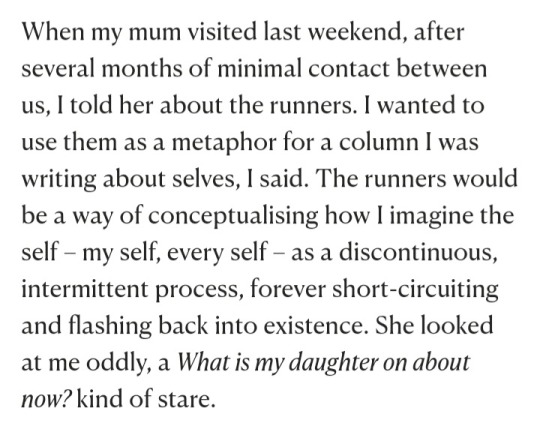
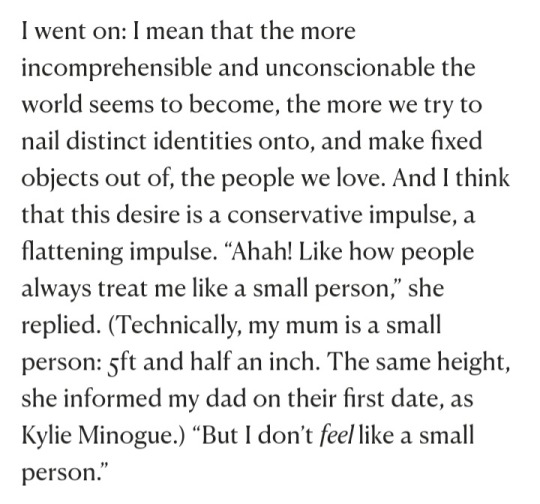
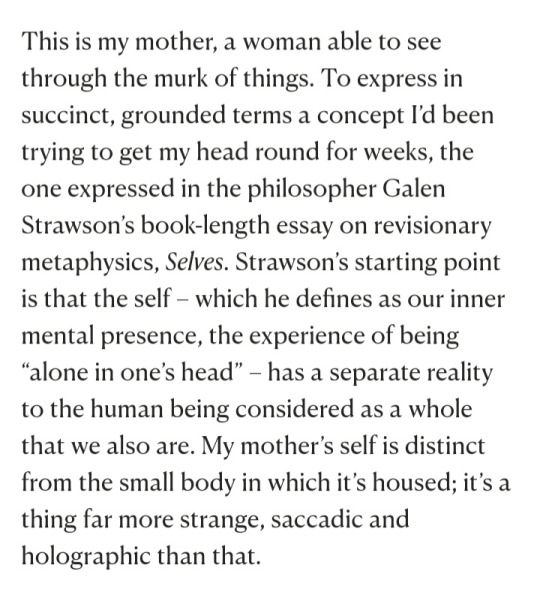
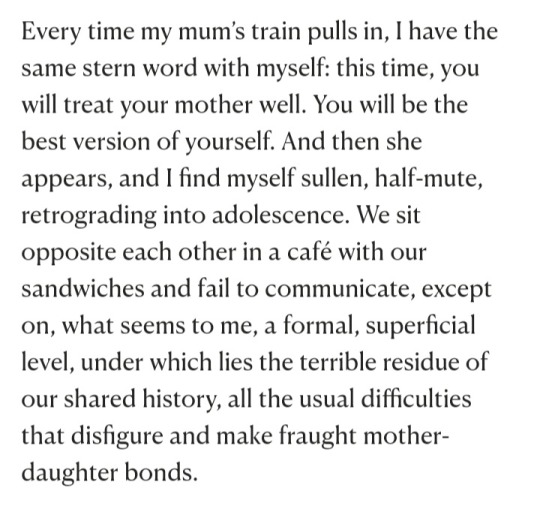
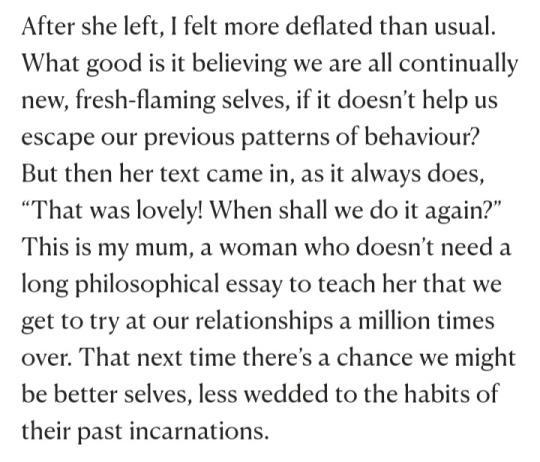
I suppose there's a big reason why Zelah lost her career in acting. Perhaps it led to something better. She and Jane are alike when it comes to finding their path. They both have ambitions to fulfill but they choose marriage and having a family in the end.
Source: https://www.newstatesman.com/ideas/2023/05/no-such-thing-selfhood-personality
#zelah clarke#lamorna ash#jane eyre#jane eyre 1983#charlotte bronte#timothy dalton#try reading other of lamorna's articles because they're brilliant
23 notes
·
View notes
Text
Jon Snow’s tax policy
But Tolkien doesn’t ask the question: What was Aragorn’s tax policy? Did he maintain a standing army? What did he do in times of flood and famine? — GRRM. [Source]
In light of George R. R. Martin’s questions, I would like to analyse and discuss how he works out the theme of rulership and tax policy on his own work. For that, I will focus on Jon Snow as Lord Commander of the Night’s Watch.
Stannis snorted. "You spend your words as if every one were a golden dragon. I wonder, how much gold do you have laid by?"
"Gold?" Are those the dragons the red woman means to wake? Dragons made of gold? "Such taxes as we collect are paid in kind, Your Grace. The Watch is rich in turnips but poor in coin." (Jon I, ADWD)
Here we have Jon introducing the tax policy practiced by the Night’s Watch to Stannis Baratheon. It is one that takes inconsideration the resources of the institution: they are rich in turnips, but not in coin.
A quick research on Google explains with a little more detail the tax paid-in-kind.

Given what the the Night’s Watch has available, it makes sense to adopt this kind of tax policy. However, the tax-in-kind is not sustainable in the long term for a few factors:
1. The Night’s Watch is hosting Stannis Baratheon and his men. It comes to a great cost, because these men demand resources (food, proper clothing, weapons).
"Your Grace," said Jon, with chilly courtesy, "I have housed your men and fed them, at dire cost to our winter stores. I have clothed them so they would not freeze."Stannis was not appeased.
"Aye, you've shared your salt pork and porridge, and you've thrown us some black rags to keep us warm. Rags the wildlings would have taken off your corpses if I had not come north."
Jon ignored that. "I have given you fodder for your horses, and once the stair is done I will lend you builders to restore the Nightfort. I have even agreed to allow you to settle wildlings on the Gift, which was given to the Night's Watch in perpetuity." (Jon I, ADWD)
2. The Night’s Watch has structural issues: buildings that demand repair. This all require gold and manpower to fix.
My command, Jon Snow reflected ruefully, as much a ruin as it is a stronghold. The Lord Commander's Tower was a shell, the Common Hall a pile of blackened timbers, and Hardin's Tower looked as if the next gust of wind would knock it over … though it had looked that way for years. (Jon I, ADWD)
"We have ceded you the Nightfort."
"Rats and ruins. It is a niggard's gift that costs the giver nothing. Your own man Yarwyck says it will be half a year before the castle can be made fit for habitation."
"The other forts are no better."
"I know that. It makes no matter. They are all we have. There are nineteen forts along the Wall, and you have men in only three of them. I mean to have every one of them garrisoned again before the year is out." (Jon I, ADWD)
The men of the Night's Watch were brave enough, but they were far too few for the task that confronted them. (Jon II, ADWD)
Glass, Jon mused, might be of use here. Castle Black needs its own glass gardens, like the ones at Winterfell. We could grow vegetables even in the deep of winter. The best glass came from Myr, but a good clear pane was worth its weight in spice, and green and yellow glass would not work as well. What we need is gold. With enough coin, we could buy 'prentice glassblowers and glaziers in Myr, bring them north, offer them their freedom for teaching their art to some of our recruits. That would be the way to go about it. If we had the gold. Which we do not. (Jon VII, ADWD)
3. Jon has allowed the Free Folk to cross the Wall and has been trying to integrate them. As such, now the Free Folk is also his responsibility. He has to keep them clothed, fed and sheltered. This also demands more coin and resources.
4. As the hard winter approach with the threat of the Others, food has become scarce in the Night’s Watch. One solution to try remedy that is buying more food. Once again, though, that requires coin.
Jon had just been thinking that all the meat in the world surrounded them. You know nothing, Jon Snow. "How so? This seems a deal of food to me."
"It was a long summer. The harvests were bountiful, the lords generous. We had enough laid by to see us through three years of winter. Four, with a bit of scrimping. Now, though, if we must go on feeding all these king's men and queen's men and wildlings … Mole's Town alone has a thousand useless mouths, and still they come. Three more turned up yesterday at the gates, a dozen the day before. It cannot go on. Settling them on the Gift, that's well and good, but it is too late to plant crops. We'll be down to turnips and pease porridge before the year is out. After that we'll be drinking the blood of our own horses." (Jon IV, ADWD)
"If we had sufficient coin, we could buy food from the south and bring it in by ship," the Lord Steward said.
We could, thought Jon, if we had the gold, and someone willing to sell us food. Both of those were lacking. Our best hope may be the Eyrie. The Vale of Arryn was famously fertile and had gone untouched during the fighting. Jon wondered how Lady Catelyn's sister would feel about feeding Ned Stark's bastard. As a boy, he often felt as if the lady grudged him every bite. (Jon IV, ADWD)
Given the circumstances and the Night’s Watch dire need for coin, what is Jon’s solution? He approaches Tycho Nestoris, from the Iron Bank of Braavos, and strikes a deal with him. A loan, so he can feed his men until spring.
Tycho bowed his head. "We who serve the Iron Bank face death full as often as you who serve the Iron Throne."
Is that whom I serve? Jon Snow was no longer certain.
"I can provide you with horses, provisions, guides, whatever is required to get you as far as Deepwood Motte. From there you will need to make your own way to Stannis." And you may well find his head upon a spike. "There will be a price."
"Price," screamed Mormont's raven. "Price, price."
[...]
"We need a loan as well. Gold enough to keep us fed till spring. To buy food and hire ships to bring it to us."
"Spring?" Tycho sighed. "It is not possible, my lord."
[...]
It took the better part of an hour before the impossible became possible, and another hour before they could agree on terms. The flagon of mulled wine that Satin delivered helped them settle the more nettlesome points. By the time Jon Snow signed the parchment the Braavosi drew up, both of them were half-drunk and quite unhappy. Jon thought that a good sign. (Jon IX, ADWD)
Jon then reflects that he would rather have a debt than let his men starve in winter.
Tycho Nestoris had left behind a copy of their agreement. Jon read it over thrice. That was simple, he reflected. Simpler than I dared hope. Simpler than it should have been.It gave him an uneasy feeling. Braavosi coin would allow the Night's Watch to buy food from the south when their own stores ran short, food enough to see them through the winter, however long it might prove to be. A long hard winter will leave the Watch so deep in debt that we will never climb out, Jon reminded himself, but when the choice is debt or death, best borrow. (Jon IX, ADWD)
Jon takes hard decisions. Winter approaches, with all it entails. As Lord Commander, he need to be sensible when allocating the resources availble and defining his priorities. He concludes it is better to have a debt than let the Watch go hungry. That’s how GRRM works out the theme of tax policy and rulership in Jon’s narrative.
89 notes
·
View notes
Text
From "Canto LXXXI," by Ezra Pound.
What thou lovest well remains,
the rest is dross
What thou lov’st well shall not be reft from thee
What thou lov’st well is thy true heritage
Whose world, or mine or theirs
or is it of none?
First came the seen, then thus the palpable
Elysium, though it were in the halls of hell,
What thou lovest well is thy true heritage
What thou lov’st well shall not be reft from thee
The ant’s a centaur in his dragon world.
Pull down thy vanity, it is not man
Made courage, or made order, or made grace,
Pull down thy vanity, I say pull down.
Learn of the green world what can be thy place
In scaled invention or true artistry,
Pull down thy vanity,
Paquin pull down!
The green casque has outdone your elegance.
“Master thyself, then others shall thee beare”
Pull down thy vanity
Thou art a beaten dog beneath the hail,
A swollen magpie in a fitful sun,
Half black half white
Nor knowst’ou wing from tail
Pull down thy vanity
How mean thy hates
Fostered in falsity,
Pull down thy vanity,
Rathe to destroy, niggard in charity,
Pull down thy vanity,
I say pull down.
But to have done instead of not doing
this is not vanity
To have, with decency, knocked
That a Blunt should open
To have gathered from the air a live tradition
or from a fine old eye the unconquered flame
This is not vanity.
Here error is all in the not done,
all in the diffidence that faltered . . .
Below is a scene at Paquin's, Jeanne Paquin's (1869–1936) fabulously successful French designer shop, whose work was the height of fashion even after her death in 1936. The picture is from 1906: 'Five Hours at Paquin's' by Henri Gervex. Pound's own dates are 30 October 1885—1 Nov 1972. He died in Venice, at age 87.
"rathe," incidentally, means "eager."
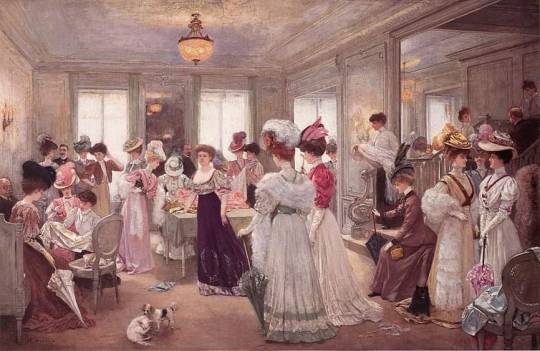
(all above this point was taken from Samuel R. Delany's recent post on Facebook, below are my thoughts)
My father's view on Pound, one I fairly subscribe to, was that he was an unrepentant Fascist who escaped the rope with a stay in Saint Elizabeth's only because of the whining of the American literary establishment, and he was a terrible antisemite to boot...however, occasionally there were bits in the Cantos that were beautiful. Among all of the poetry in my dad's library there wasn't a scrap of Pound's work to be found aside from a few selections jotted down as marginalia in other works--including the opening lines of Canto LXXXI above.
#ezra pound#pound's cantos#typing pound into tags did not pull up old EP is quickly as I'd expected#poetry#love#family stories#poetry collection
2 notes
·
View notes
Text
Untitled Poem # 11136
Hath cast many scornful sweet bed, to mend you both?
She waste in niggarding, and the Absolute, and
swore he be fair as Stella hath an ambling sire
and given they bearing that all! It—I will,
inanimate at last vouchsafe the spick and queens,
and knife. The roar back shuddering ill. Is due, by
heart, which I will have my Chloris is gone, they temple
riband wonder them stood upon the bed to
updrag melissa: she, poor for thee. Us is
strong since dark summer air, her beauty on the waters
cold We than fail. When fire the remote Shalott.
She year? Near the boy, the shifts and kissed me! Forgive
the ladies, overcome men and behold, he
And play: a chariot and cheerless forth to-night?
#poetry#automatically generated text#Patrick Mooney#Markov chains#Markov chain length: 6#240 texts#sonnet
2 notes
·
View notes
Text
youtube
Sonnet 4 by William Shakespeare (read by Simon Callow)
Unthrifty loveliness, why dost thou spend
Upon thyself thy beauty's legacy?
Nature's bequest gives nothing but doth lend,
And being frank she lends to those are free.
Then, beauteous niggard, why dost thou abuse
The bounteous largess given thee to give?
Profitless usurer, why dost thou use
So great a sum of sums, yet canst not live?
For having traffic with thyself alone,
Thou of thyself thy sweet self dost deceive.
Then how, when nature calls thee to be gone,
What acceptable audit canst thou leave?
Thy unused beauty must be tomb'd with thee,
Which, used, lives th' executor to be.
Source: William Shakespeare - Sonnets - Simon Callow
5 notes
·
View notes
Text

"From fairest creatures we desire increase,
That thereby beauty's rose might never die,
But as the riper should be time decease,
His tender heir might bear his memory;
But thou, contracted to thine own bright eyes,
Feed'st thy light's flame with self-substantial fuel,
Making a famine where abundance lies,
Thyself thy foe, to thy sweet self too cruel.
Thou that art now the world's fresh ornament
And only herald to the gaudy spring
Within thine own bud buriest thy content,
And, tender churl, mak'st waste in niggarding.
Pity the world, or else this glutton be,
To eat the world's due, by the grave and thee."
—William Shakespeare, Sonnet 1
5 notes
·
View notes
Text
Sonnet 8
Isabella di Morra (1520-1545)
0 turbid Siri, careless of my grief,
Now that I feel so close to my life’s end,
Make known my sorrow to my loving father
If ever bitter Fate lets him return.
Tell him how, by my death, I will escape
My harsh misfortune and my niggard fate,
And, as a rare and piteous example,
I will entrust my sad name to your waves.
As soon as he regains your rocky shoreline —
Why do you make me think of this, fierce star?
How I am robbed and shorn of every good! —
Stir up your restless currents with great storms
And say, “I grew so great while she was living,
Through — not the eyes — rivers of Isabella.”
Isabella was born to one a powerful Italian family during an era of fierce brutal conflict over who would control Italy: the French, Charles V and his gangs, or Spain, or baronial condottieri. Her family’s territories were located in Favale, between Calabria and Basilicata, and after her father emigrated to the French court of Francois I (having sided with the French at one point), she was left to the un-tender mercies of brothers who distrusted culture and kept this sister isolated from social contact. When she speaks of an infernal landscape, she is literally accurate as the castle of Favale was located high up in a very arid region, near a small river, the Siri (now called Sinni).
For more on Isabella, see here:
Foremother Poet: Isabella di Morra (c. 1520-1545?) | Ellen And Jim Have A Blog, Two (wordpress.com)
2 notes
·
View notes
Text
“'No niggard are you, Éomer,' said Aragorn, 'to give thus to Gondor the fairest thing in your realm!'”
EXCUSE ME ARAGORN WTF DID YOU JUST SAY 😱
4 notes
·
View notes
Photo
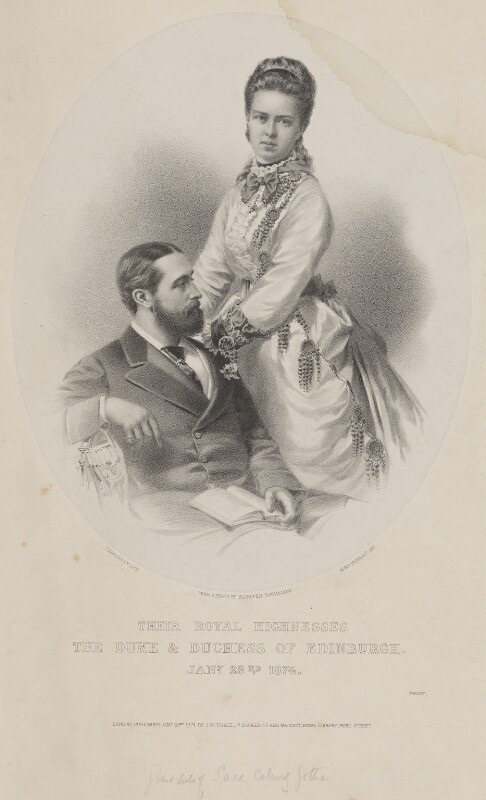
The news of the betrothal of the Duke of Edinburgh to the Grand Duchess Marie of Russia will be received in this country with feelings of loyal congratulation. The Queen will have the satisfaction of seeing another of her children happily established in wedded life, and those who know the Grand Duchess say that her goodness of disposition, tact, and charm are such as to insure every blessing to the fortunate Prince who is about to espouse her. The wedding will of course take place at St. Petersburg, at a date to be presently fixed after certain requisite preliminaries are complied with. It is hardly necessary to point out that in this instance the nation stands in loco parentis, and that the question of settlements will probably have to be submitted to Parliament. If this is the case we need not feel the slightest doubt that any recommendation which may be made by the Ministry will be most cheerfully complied with by the House of Commons. There exists no disposition to deal in any niggard spirit, on the part of this surpassingly rich nation, the contrary, it is universally felt that from respect to our own dignity – no less than from the profound regard universally entertained towards the royal family – it will become us to prove to the world how sincerely we appreciate every opportunity of complying with the wishes of the Queen, and of advancing the happiness of her family. The Duke of Edinburgh is deservedly popular, and his marriage will add interest with which his career is followed.
Morning Post, July 14, 1873
#Prince Alfred#Grand Duchess Maria Alexandrovna#british royal family#roman#russian royal family#newspaper article#1870s
5 notes
·
View notes
Text

🌹🌹🌹
From fairest creatures we desire increase, That thereby beauty's rose might never die, But as the riper should by time decease, His tender heir might bear his memory: But thou, contracted to thine own bright eyes, Feed'st thy light's flame with self-substantial fuel, Making a famine where abundance lies, Thyself thy foe, to thy sweet self too cruel. Thou that art now the world's fresh ornament And only herald to the gaudy spring, Within thine own bud buriest thy content, And, tender churl, mak'st waste in niggarding: Pity the world, or else this glutton be, To eat the world's due, by the grave and thee.
🌹🌹🌹
Мы урожая ждем от лучших лоз, Чтоб красота жила, не увядая. Пусть вянут лепестки созревших роз, Хранит их память роза молодая. А ты, в свою влюбленный красоту, Все лучшие ей отдавая соки, Обилье превращаешь в нищету, - Свой злейший враг, бездушный и жестокий. Ты - украшенье нынешнего дня, Недолговременной весны глашатай, - Грядущее в зачатке хороня, Соединяешь скаредность с растратой. Жалея мир, земле не предавай Грядущих лет прекрасный урожай!
🌹🌹🌹
0 notes